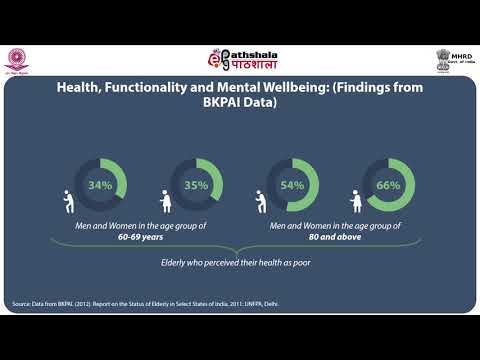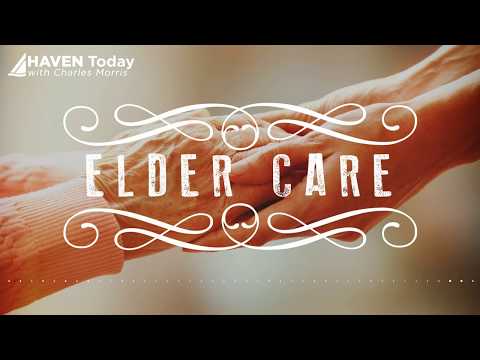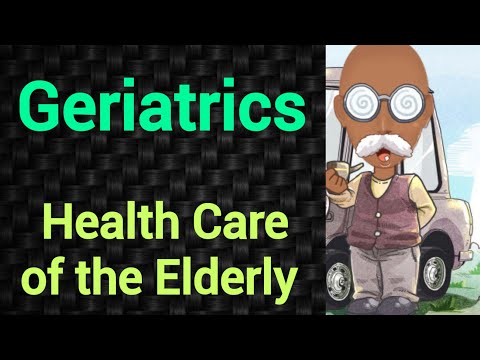What You Need to Know About Elderly Health Insurance
Contents [show]
If you’re like most people, you probably don’t think much about health insurance for the elderly. However, this is an important topic to consider, especially if you have elderly parents or relatives. In this blog post, we’ll cover what you need to know about elderly health insurance including the different types of coverage available and how to choose the right policy for your loved ones.
Checkout this video:
What is Elderly Health Insurance?
Elderly health insurance is a type of health insurance that is specifically designed to cover the health care needs of senior citizens. There are a number of different types of elderly health insurance plans available, and each one provides different levels of coverage. Elderly health insurance plans are typically more expensive than traditional health insurance plans, but they can provide seniors with the peace of mind that comes with knowing their medical needs will be taken care of.
What are the Benefits of Elderly Health Insurance?
There are many benefits of having health insurance as you age. With rising healthcare costs, health insurance can help you afford the care you need. It can also give you peace of mind knowing that you are covered in case of an emergency.
Elderly health insurance can cover a wide range of services, including preventive care, doctor visits, hospital stays, and prescriptions. Some plans also offer coverage for dental and vision care. If you have a chronic condition such as diabetes or heart disease, your plan may offer extra benefits to help you manage your condition.
Having health insurance can also help you stay healthy as you age. That’s because with health insurance, you are more likely to get preventive care – checkups, screenings, and vaccinations – which can help find problems early when they are easier to treat.
If you don’t have health insurance through your job or a government program like Medicare or Medicaid, there are other options. You can buy an individual health insurance plan through the Health Insurance Marketplace You may be able to get financial assistance to help pay for your premiums and out-of-pocket costs.
What are the Types of Elderly Health Insurance?
There are four types of health insurance plans available to seniors: Medicare, Medicaid, private insurance, and long-term care insurance.
Medicare is a federal health insurance program for seniors aged 65 and over, or those with certain disabilities. Medicaid is a joint federal-state health insurance program for low-income Americans of all ages. Private insurance is any type of health insurance that is not provided by the government, such as through an employer or a plan you purchase on your own. Long-term care insurance helps cover the costs of custodial care, such as in-home care or nursing home care.
Not all seniors will qualify for all types of elderly health insurance. Eligibility for Medicare and Medicaid is based on income and resources, while private insurance typically requires that you purchase a plan or be covered by an employer-sponsored plan. Long-term care insurance is typically only available to those who are not already dealing with a chronic illness or disability.
No matter what your health insurance situation looks like, it’s important to understand your options and make sure you’re getting the coverage you need.
What are the Eligibility Requirements for Elderly Health Insurance?
To be eligible for elderly health insurance, you must be aged 65 or over. You will also need to be a resident of the United States and a citizen or national of the country. You may also be eligible if you are under the age of 65 and have a disability that is certified by the Social Security Administration or a similar agency.
How to Apply for Elderly Health Insurance?
It is important to know how to apply for elderly health insurance, as this can be a complicated and confusing process. There are a few things that you need to know before you start the application process.
First, you need to know what kind of coverage you need. There are two basic types of elder care insurance: long-term care insurance and Medicare supplement insurance. Long-term care insurance helps pay for nursing home care or in-home care when you can no longer take care of yourself. Medicare supplement insurance helps pay for some of the out-of-pocket costs not covered by Medicare, such as deductibles and co-pays.
Once you know what type of coverage you need, you need to find an insurer that offers it. You can check with your state’s department of insurance to find carriers that offer the type of coverage you’re looking for. You can also check with private companies that specialize in elder care insurance.
Once you’ve found a few insurers that offer the type of coverage you’re looking for, it’s time to start comparing rates and benefits. Be sure to read the fine print carefully before making a decision. Some policies will have exclusions or limitations that may not be obvious at first glance.
After you’ve chosen an insurer, it’s time to complete the application process. This usually involves a physical exam and answering some questions about your health history. Once your application is approved, your policy will go into effect and you’ll be able to start using your coverage.
How to Renew Elderly Health Insurance?
There are a few things you need to know about renewing your elderly health insurance. For starters, you will need to make sure that you are still eligible for the coverage. This means that you will need to be at least 65 years old and a US citizen or permanent resident. If you meet these requirements, you can renew your policy by contacting your insurance company or agent.
Next, you will need to provide some information about your health status. This includes whether or not you have any pre-existing conditions, as well as any changes in your health since you last applied for coverage. Based on this information, your insurance company will determine whether or not you are still eligible for coverage and what kind of premium you will need to pay.
It is important to keep in mind that your health insurance policy is a contract between you and the insurance company. This means that if you do not pay your premiums on time, the company can cancel your coverage. Therefore, it is important to make sure that you keep up with your payments and make them on time.
Finally, it is also important to remember that your health insurance policy does not cover everything. There are some things that are not covered by most policies, such as long-term care or dental care. If you need coverage for these things, you may need to purchase a separate policy or riders (add-ons) to your existing policy.
What are the Premiums for Elderly Health Insurance?
As we age, our health needs change and our insurance premiums reflect that. The cost of premiums for elderly health insurance can become a significant financial burden, so it’s important to understand what you’re paying for.
There are two types of insurance that cover the elderly: private health insurance and Medicare. Medicare is a federal program that provides health insurance for people 65 and older, as well as some younger people with disabilities. Private health insurance is offered by companies and covers people of all ages.
The premium is the monthly payment you make to your insurance company to maintain your coverage. The amount of your premium depends on a variety of factors, including your age, health, coverage needs, and insurer.
For private health insurance, the premium is typically higher for older adults because they are more likely to need medical care than younger people. Premiums also vary based on the type of coverage you choose. For example, plans with lower deductibles (the amount you pay out-of-pocket before your insurer steps in) tend to have higher premiums than those with higher deductibles.
Medicare premiums are based on your income and can range from $104.90 per month to $335.70 per month in 2020. If you have Medicare and Medicaid (a state-run program that provides medical assistance for low-income people), your Medicaid office will determine how much of your premium is covered by Medicaid.
It’s important to compare premiums when shopping for elderly health insurance because the monthly cost can vary significantly from one company to the next. Keep in mind that the premium is just one part of the equation—you also need to consider things like deductibles, co-pays, and coverage levels when choosing a plan.
What are the Exclusions for Elderly Health Insurance?
Most health insurance policies for the elderly have exclusions, which are conditions or treatments that are not covered by the policy. Some of the more common exclusions for elderly health insurance are:
-Dental care
-Eye care
-Hospitalization
-Mental health care
-Outpatient care
-Prescription drugs
-Therapy
What are the Claim Procedures for Elderly Health Insurance?
There are many different types of health insurance available for seniors, and each type has its own claim procedures. It’s important to understand the claim procedures for your particular plan so that you can be sure to get the coverage you need.
For most elderly health insurance plans, you will need to submit a claim form in order to get reimbursement for your medical expenses. The claim form will typically list the date of service, the type of service, the provider, the amount charged, and other relevant information. You may also need to submit documentation such as a bill or receipt. Once your form is submitted, the insurer will process the claim and send you a check for the amount they are willing to reimburse.
It’s important to note that not all services will be covered by your elderly health insurance plan. In general, preventive care and routine check-ups are not covered. Additionally, most plans have a deductible that you will need to pay before the insurer will start reimbursing you for your medical expenses. Be sure to check with your particular plan to see what is and is not covered.
How to Make the Most of Elderly Health Insurance?
As people age, they become more prone to age-related health problems and their insurance needs change accordingly. If you’re over 65, you may be covered by Medicare, the federal health insurance program for seniors. However, Medicare doesn’t cover everything, so you may want to consider supplementing your coverage with a private insurer.
There are a few things to keep in mind when shopping for elderly health insurance. First, make sure the policy covers the type of care you’re likely to need as you age. For example, if you have a chronic condition such as diabetes or heart disease, make sure your policy will cover the cost of treatment.
Second, consider the deductible and co-payments required by the policy. A high deductible can save you money on premiums, but it will also mean that you have to pay more out of pocket when you need care. Co-payments can also add up, so be sure to compare them across different policies.
Finally, don’t forget to factor in the cost of prescription drugs. Many seniors require multiple medications, and not all insurance plans will cover the full cost of these drugs. If prescription coverage is important to you, make sure it’s included in your policy.







